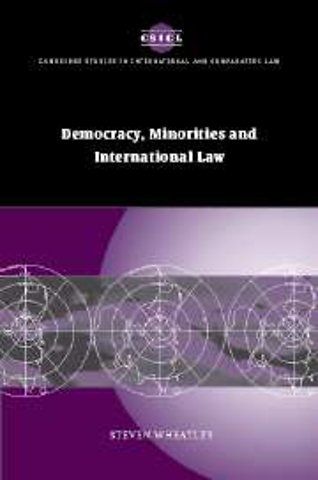Democracy, Minorities and International Law
Samenvatting
This work explores the contribution that international law may make to the resolution of culture conflicts - political disputes between the members of different ethno-cultural groups - in democratic States. International law recognises that persons belonging to minorities have the right to enjoy their own culture and peoples have the right to self-determination without detailing how these principles are to be put into effect. The emergence of democracy as a legal obligation of States permits the international community to concern itself with both the procedure and substance of 'democratic' decisions concerning ethno-cultural groups. Democracy is not to be understood simply as majority rule. Cultural conflicts in democratic States must be resolved in a way that is either acceptable or defensible and defeasible to all citizens, including persons belonging to ethno-cultural minorities. Democracy, Minorities and International Law examines the implications of this recognition.
Specificaties
Inhoudsopgave
Net verschenen
Rubrieken
- aanbestedingsrecht
- aansprakelijkheids- en verzekeringsrecht
- accountancy
- algemeen juridisch
- arbeidsrecht
- bank- en effectenrecht
- bestuursrecht
- bouwrecht
- burgerlijk recht en procesrecht
- europees-internationaal recht
- fiscaal recht
- gezondheidsrecht
- insolventierecht
- intellectuele eigendom en ict-recht
- management
- mens en maatschappij
- milieu- en omgevingsrecht
- notarieel recht
- ondernemingsrecht
- pensioenrecht
- personen- en familierecht
- sociale zekerheidsrecht
- staatsrecht
- strafrecht en criminologie
- vastgoed- en huurrecht
- vreemdelingenrecht

